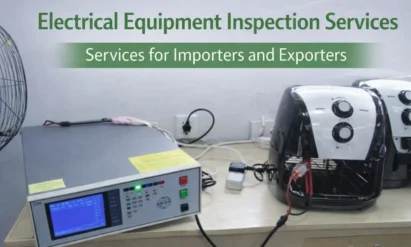What is COC Certification?
A Certificate of Conformity (COC) is an official document issued by an authorized third-party inspection or certification body. It confirms that a product meets the required national or international standards, regulations, or specifications in the country where it is being imported.
For exporters and overseas buyers, the COC certificate serves as proof of product compliance and is often a mandatory prerequisite for customs clearance.
What is the Purpose of a Certificate of Conformance?
If you plan to sell your products in multiple markets, they will need to meet various regulatory requirements or customs clearance requirements. This document helps promote trade by boosting industry and consumer confidence within the market.
Some countries may require a Certificate of Conformity (CoC) for regulatory or customs control purposes, depending on the type of imported product.
For example, when you sell your products to different markets, such as the United States, China, or European countries, your customers or buyers may ask you for a Certificate of Conformity (CoC). Often, without a Certificate of Conformity, you may have difficulty placing your products on the market.
The Certificate of Conformity (COC) plays a variety of key roles in international trade.
- Ensure compliance with local standards and technical regulations (such as safety, environmental, or performance requirements).
- Ensure smooth customs clearance, reduce delays and fines.
- Protect consumers from substandard or unsafe products.
- Reduce business risks such as fines, product recalls, and reputational damage.
- Demonstrate transparency and credibility to overseas partners and regulators.
In many countries, products without a valid COC certificate may be refused entry, detained at the port, or returned to the shipper.
Who Issues a Certificate of Compliance?
Certificates of Compliance (CoCs) are typically issued by manufacturers, though accredited third-party testing laboratories may also provide them. The underlying standards can be voluntary, developed by industry groups or trade associations—or mandatory, as required by governmental regulations.
A CoC generally specifies the applicable standards and the product’s country of origin.
For example, it may confirm that a product complies with relevant European directives and bears the CE mark, or that it meets ISO 9001:2008 quality management standards. In either case, the issuer certifies that the product adheres to the stated requirements.
Which Countries Require COC Certification?
COC certification requirements are particularly common in countries across the Middle East, Africa, and parts of Asia.
Examples include:
- Saudi Arabia(SASO/Saber system)
- Kenya(PVOC – Pre-Export Verification of Conformity)
- Nigeria(SONCAP – Standards Organization of Nigeria Conformity Assessment Program)
- Tanzania(TBS – Tanzania Bureau of Standards)
- Uganda(UNBS – Uganda National Bureau of Standards)
- Algeria, Kuwait, Qatar, Ethiopia, Zimbabwe, Iran, and others.
Each of these countries has appointed certain authorized inspection bodies (e.g. SGS, Intertek, Bureau Veritas) to issue COC certificates before goods are shipped.
The Role of COC Certification
From a regulatory standpoint, the Certificate of Conformity (COC) is not merely a document—it forms a key component of national conformity assessment systems.
It enables authorities to enforce technical standards before goods enter the market, protecting importers and buyers from liability and reputational risks. For exporters, a valid COC streamlines customs clearance and accelerates market access.
This is particularly crucial for cross-border e-commerce sellers, as it reduces the likelihood of disputes with customs authorities and boosts buyer confidence in product quality and compliance.
What Should a Certificate of Conformity Include?
Although formats vary slightly by country, a typical COC certificate includes the following elements:
- Product name, model number, and description
- Exporter and manufacturer information
- Destination country
- Standards or regulations met
- Inspection or test report references
- Certificate number and issue date
- Issuing body details and official signature/stamp
High-quality COC certificates often include traceable QR codes or watermarks to prevent forgery.

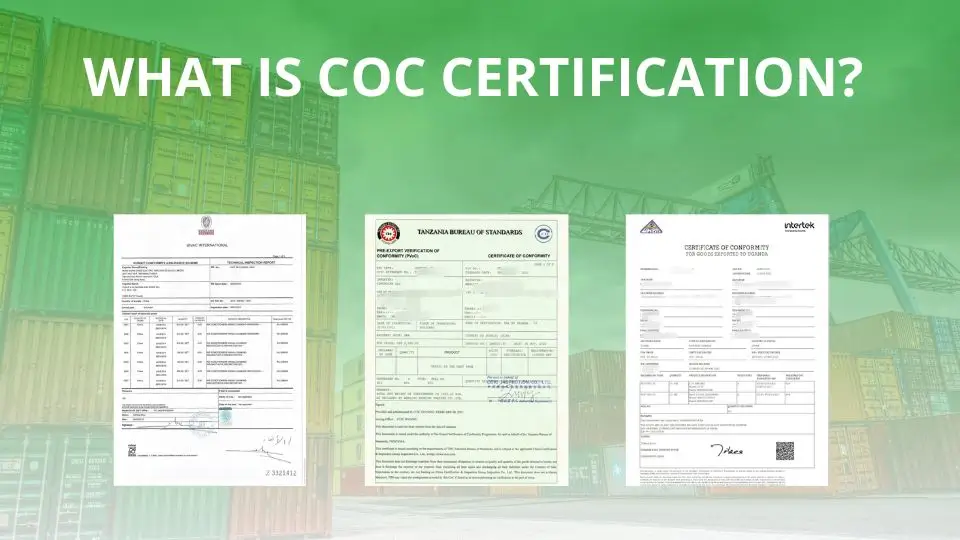
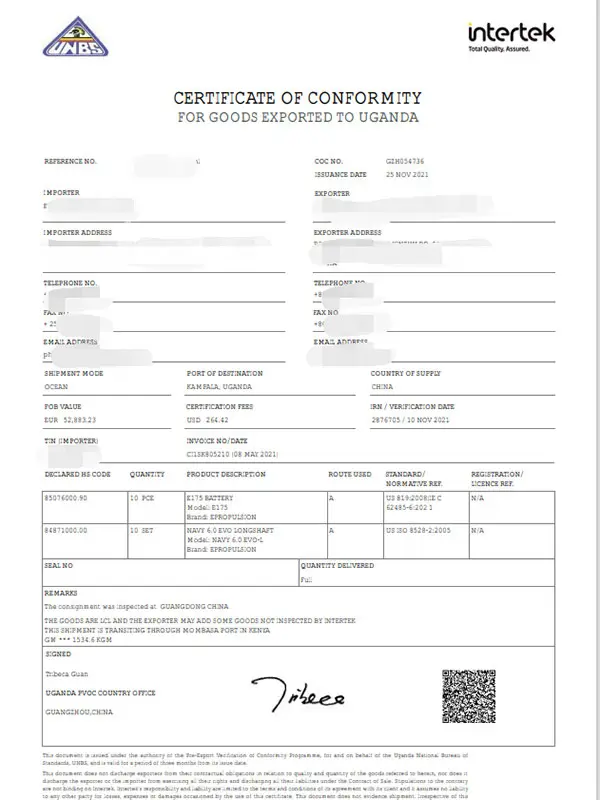
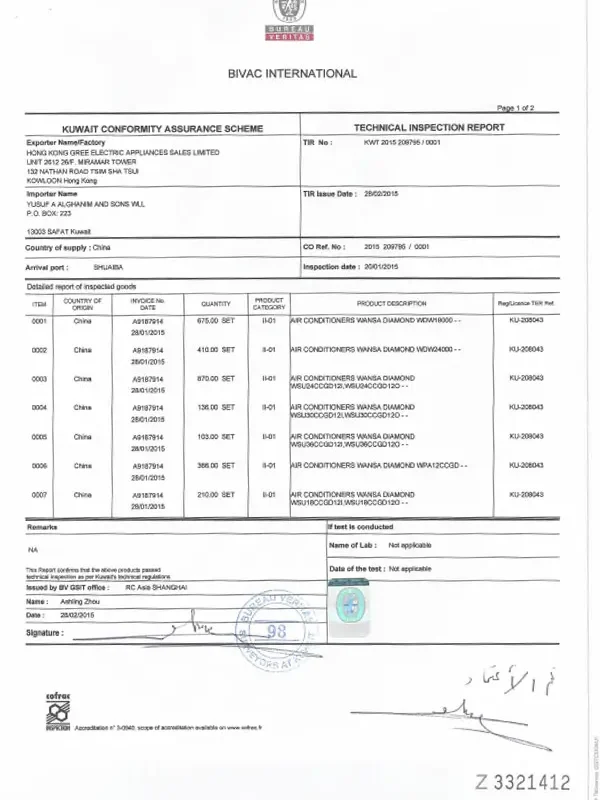
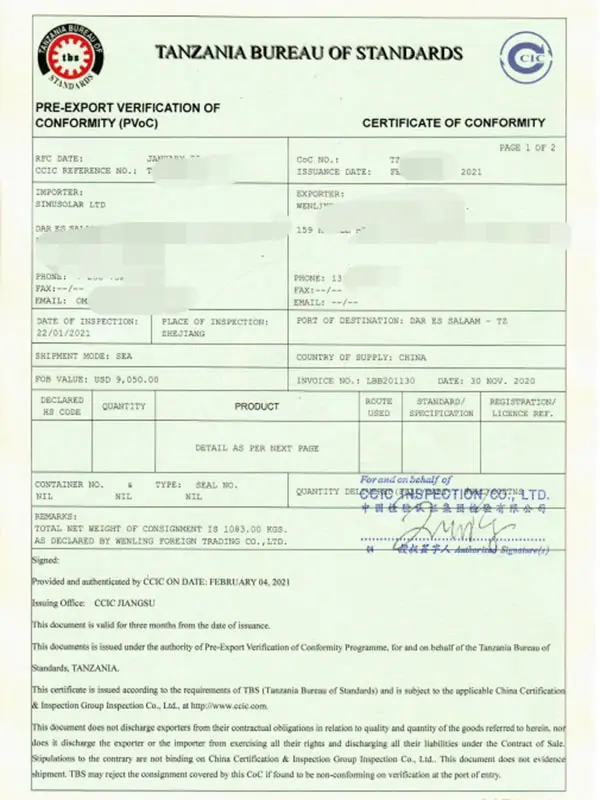

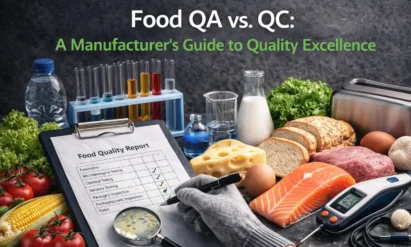
 December 31,2025
December 31,2025
